BY WALTER OPINDE
The most controversial laws of the late 18th and the early 19th centuries were the “Fugitive Slave Acts.” Many Northern states passed these special legislations in their attempts solve the issue of slaves’ escapes. Therefore, the Fugitive Slave Acts were a pair of federal laws that permitted the capture and return of runaway slaves within the U.S. territories. Enacted by the Congress in 1793, the first Fugitive Slave Act authorized local governments to seize and return escaped slaves to their owners and imposed penalties on anyone who aided in their flight. Widespread resistance to the 1793 law later led to the passage of the Fugitive Slave Act of 1850, which added further provisions regarding runaways and levied even harsher punishments for interfering in their capture.
The Fugitive Slave Act of 1793 was an Act of the U.S. Congress to give effect to the Fugitive Slave Clause of the U.S. Constitution (Article 4, Section 2, Clause 3 Note: Superseded by the Thirteenth Amendment), which guaranteed a right of a slaveholder to recover an escaped slave. The Act’s title was “An Act respecting fugitives from justice, and persons escaping from the service of their masters.” It created the legal mechanism by which this issue could be addressed. As such, the South wanted slavery to continue while the North was working hard to end the slavery.
The Act was passed by the House of Representatives on February 4, 1793, by a vote of 48 vs. 7, with 14 abstaining. However, the “Annals of Congress” state that the law was approved on February 12, 1793. The Act was strengthened at the insistence of the slave states of the South by the Compromise of 1850, which required even the governments and residents of Free States to enforce the capture and return of fugitive slaves. This enforcement of the Act outraged Northern public opinions. Several Northern states even enacted measures prohibiting state officials from aiding in the capture of runaway slaves or from jailing the fugitives. This disregard of the first fugitive slave law enraged Southern states and led to the passage of a second fugitive slave law as part of the Compromise of 1850 between the North and South.
The second fugitive slave law called for the return of slaves “on pain of substantial penalty” but permitted a jury trial under the condition that fugitives be prohibited from testifying in their own defense. Notable fugitive slave trials, such as the Dred Scott case of 1857, stirred up public opinion on both sides of the Mason-Dixon Line. Meanwhile, fugitive slaves circumvented the law through the “Underground Railroad,” which was a network of persons, primarily free African-Americans, who helped fugitives escape to freedom in the Northern states or to Canada.
Read more of the story via:
https://efreemansite.wordpress.com/2015/01/25/fugitive-slave-act-and-the-reactions/
http://www.history.com/topics/black-history/fugitive-slave-acts
Sources
Carol Wilson, Freedom at Risk: The Kidnapping of Free Blacks in America, 1780–1865, University Press of Kentucky, 1994.





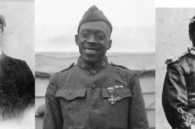

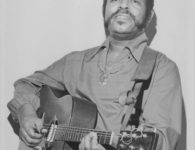

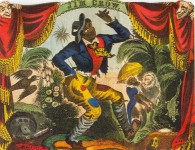





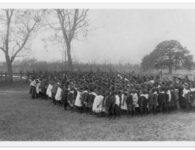
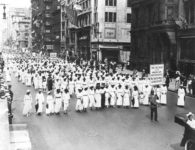



3 Comments
Hello my friend! I wish to say that this post is awesome,
nice written and include approximately all vital infos. I’d like to look more posts like this .
It’s remarkable in support of me to have a site, which is beneficial in support of my know-how.
thanks admin
This is a cool post thanks a lot.